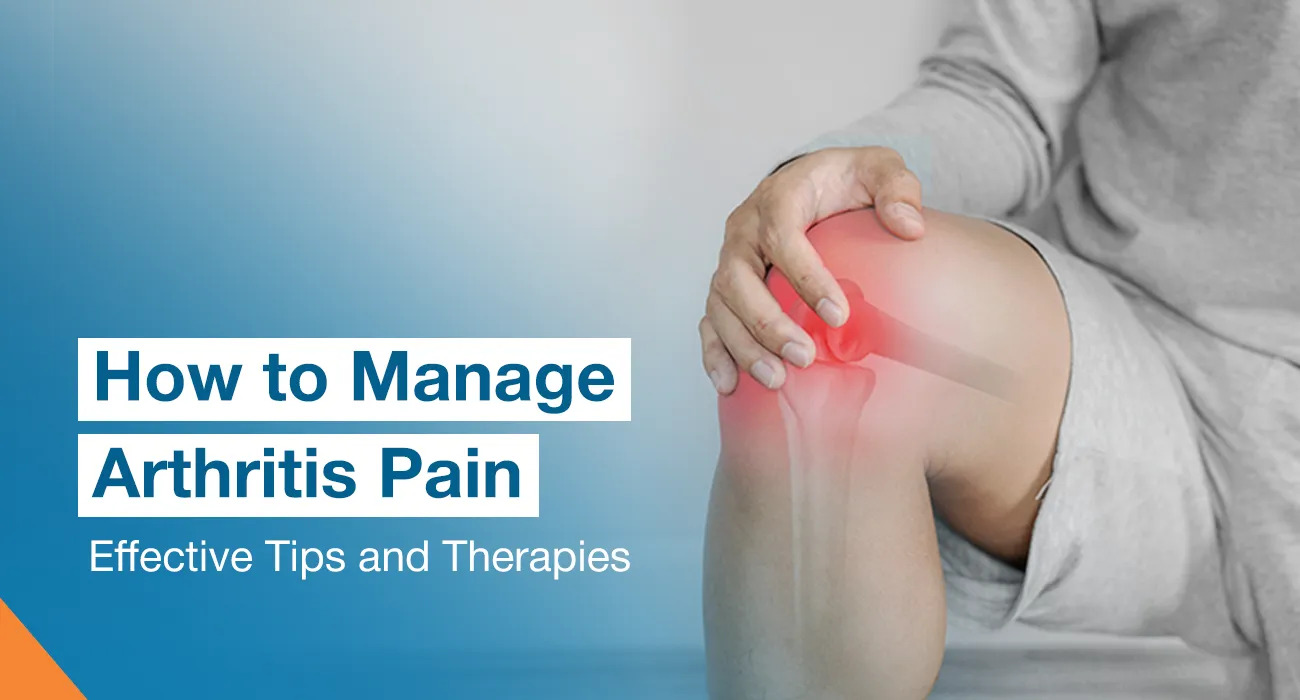How to Manage Arthritis Pain: Effective Tips and Therapies
10/14/2025
What is Arthritis Pain
Arthritis pain occurs when your joints, such as wrists, knuckles, hips, knees, and ankles, hurt and feel stiff. This condition can make movement difficult and cause swelling or redness. The pain happens because the cushion in the joint is damaged or the body’s defense system attacks the joints. It can make you feel sore, achy, or stiff, particularly in the morning. There are treatments available that help ease the pain and keep you moving.
How Common is Arthritis
According to 2019 data, approximately 528 million people worldwide were living with osteoarthritis, an increase of 113% since 1990
Which Country Has the Highest Rate of Arthritis?
As of 2021, China reported the highest number of RA cases among 204 countries.
What are the Types of Arthritis
The following are the types of arthritis:
- Osteoarthritis (wear and tear of joints)
- Rheumatoid arthritis (joint inflammation due to an autoimmune condition)
- Ankylosing spondylitis (lower back, especially the spine and pelvis, inflammation)
- Gout (complex arthritis from crystal buildup)
- Psoriatic arthritis (arthritis associated with the psoriasis skin condition)
- Reactive arthritis (joint inflammation following infection)
- Juvenile idiopathic arthritis (arthritis in children)
- Septic arthritis (joint infection)
- Diffuse idiopathic skeletal hyperostosis (DISH) (tendon and ligament calcification around the spine)
How to Manage Arthritis Pain
There are many treatment and management options, but they will depend on:
- What type of arthritis do you have
- Which joints are affected
- What are your symptoms
Some of the effective therapies for arthritis pain are:
1. Arthritis Medicine for Pain Relief
The medicines may include:
- Pain-relief medicines
- Anti-inflammatory medicines
- Disease-modifying anti-rheumatic drugs (DMARDs)
- Some are topical gels; others are oral pills.
These help reduce joint pain and swelling by blocking compounds or chemicals that cause swelling and pain.
2. Surgery for Arthritis Treatment
Surgical options are only considered when nonsurgical treatments fail to relieve arthritis symptoms.
The surgeries may include:
- Joint replacement (arthroplasty)
- Joint fusion (arthrodesis)
- Joint repair (such as arthroscopy)
These surgeries help repair or replace damaged joints to relieve severe pain and restore movement.
3. Natural Remedies for Arthritis Pain
There are 1o natural ways to manage arthritis symptoms, especially pain and swelling:
- Manage your weight
- Get enough exercise
- Use hot and cold therapy
- Acupuncture
- Relaxation techniques like yoga and meditation to cope with pain
- A healthy diet
- Add turmeric to dishes
- Get a massage
- herbal supplements like (boswellia, bromelain, devil’s claw, ginkgo, and stinging nettle)
- Cognitive behavioral therapy, also called CBT
| Foods to Eat in Arthritis | Foods to Avoid Arthritis |
| • fatty fish • olive oil • broccoli • walnuts • spinach • grapes • berries • garlic • ginger |
• added sugars • gluten |
These natural remedies, after doctors' approval, can help ease pain and stiffness naturally. Also, they often come with fewer side effects than medicines.
4. Exercises for Arthritis Pain
The 11 exercises for arthritis pain are:
- Child’s Pose
- Neck rotations
- Downward-Facing Dog
- Door presses
- Knuckle bends
- Finger bends
- Fingertip touches
- Fist stretch
- Lunge
- Knee-to-chest stretch
- Step-ups
These exercises target different body parts; based on the type of arthritis you have, you can customize your exercise routine with professional help. Exercises for arthritis can improve overall function and reduce symptoms such as pain, discomfort, and stiffness.
Arthritis Pain: Diagnosis and Tests
A healthcare professional will perform the physical test and then may order different tests for further examination:
- X-ray
- Ultrasound.
- Magnetic resonance imaging (MRI)
- A computed tomography (CT) scan
- Blood tests to check your uric acid levels
At What Age Does Arthritis Generally Start?
It may start at any age. In general, osteoarthritis occurs in adults older than 50. Rheumatoid arthritis generally occurs in adults aged 30 to 60.
Arthritis: The Risk Factors
Arthritis has many risk factors, such as:
- Smoking
- Family history
- Physically active or not
- Other health conditions, such as autoimmune diseases, obesity, or any joint condition
When Should I Consult My Doctor?
If you are experiencing the following symptoms, then you should visit your doctor as soon as possible:
- Severe pain lasting for more than a week
- Stiffness that’s getting worse, mainly if you suddenly can’t move a joint as you used to.
- Worsening or more frequent flare-ups of your usual symptoms.
Managing arthritis pain demands a comprehensive treatment plan customized to your type of arthritis and its symptoms. At Eternal Hospital, trusted experienced doctors combine medicines, natural remedies, exercises, and surgery if required to lower pain, improve joint function, and improve quality of life. Our personalized approach provides the best care and support for long-term arthritis management.

